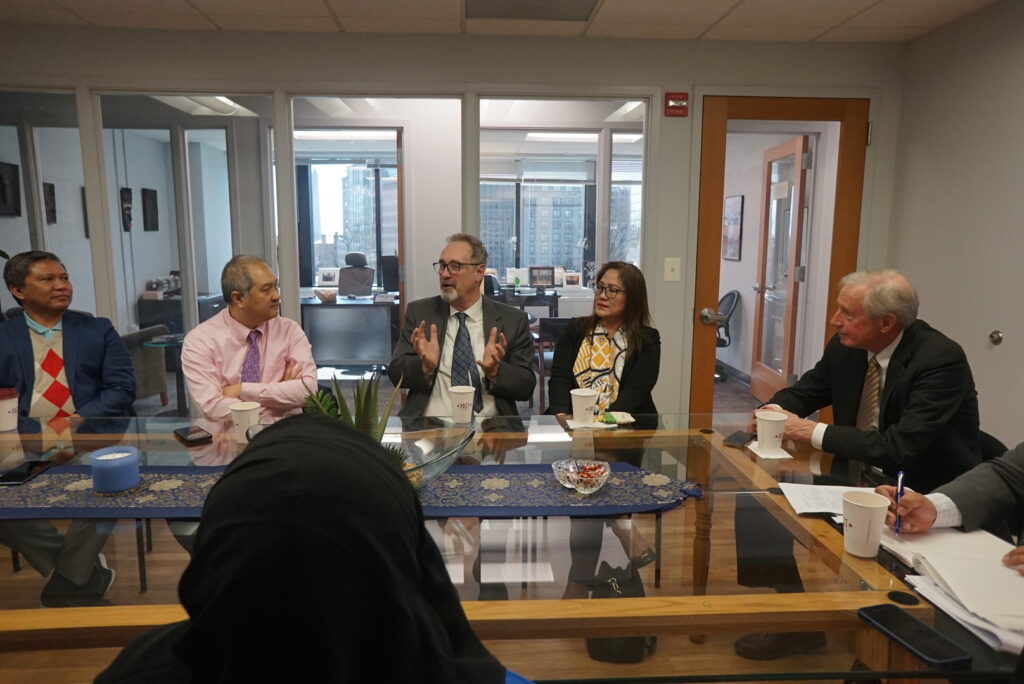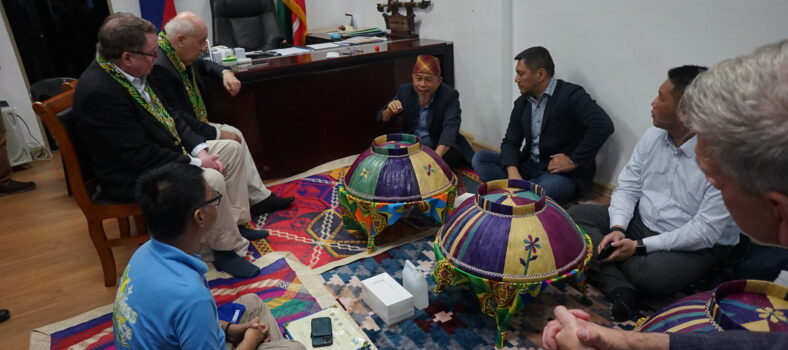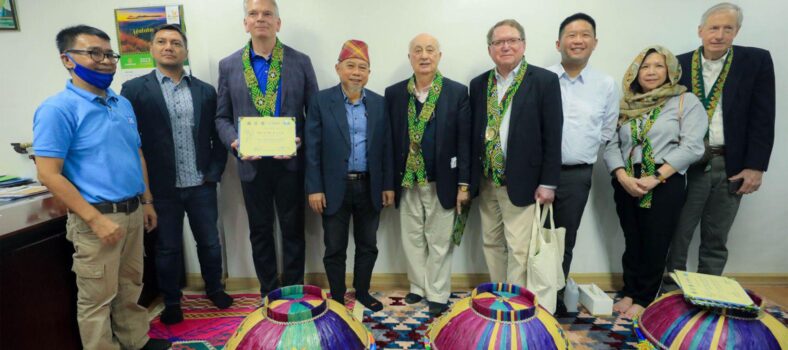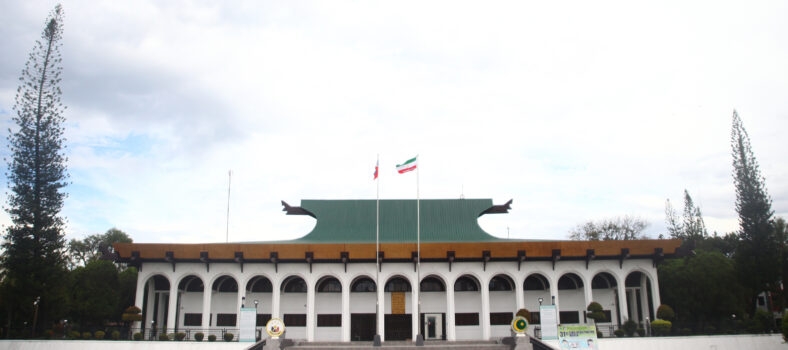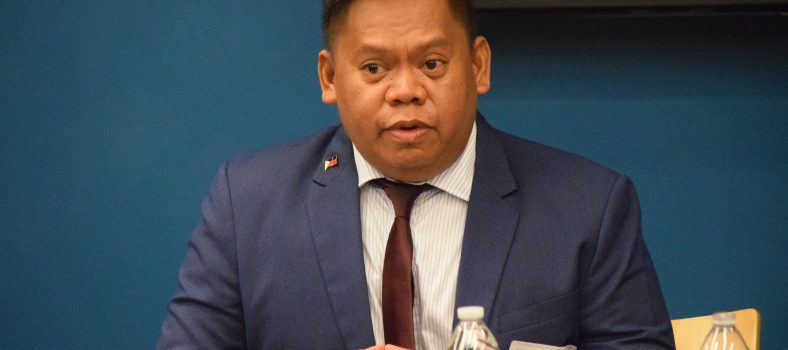Economic Development and Achieving Sustainable Peace in Muslim Mindanao
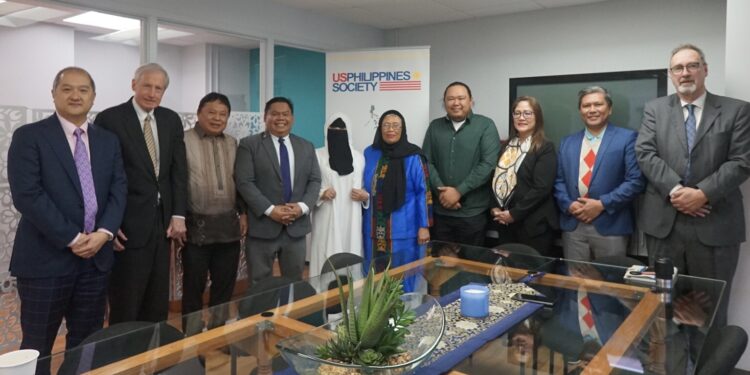
Washington, DC – The US-Philippines Society led a third discussion in a series of forums in partnership with the Philippine Embassy in Washington DC and the Philippine Economic Zone Authority (PEZA) about prime investment opportunities in the Philippines focusing on economic development in the Bangsamoro region. PEZA OIC Deputy Director General for Finance and Administration Aleem Guiapal shared insights on the role of PEZA in the provinces where fiscal incentives are more favorable to investors. Under the old ARMM (Autonomous Region of Muslim Mindanao), PEZA in partnership with the Mindanao Development Authority and the National Commission on Muslim Filipinos, undertook a case study of 18 proposed ecozones in southern Mindanao. Currently there is only one economic zone – the Polloc Freeport and Economic Zone (PFEZ) in Maguindanao.
In 2019, the Bangsamoro Autonomous Region in Muslim Mindanao (BARMM) was created following the ratification of Republic Act 11054 or the Organic law for the BARMM replacing ARMM. Under the new BARMM, the main administrative government was established in Cotabato City, and conduct of regular interaction between the national government and the Bangsamoro government is made through the Intergovernmental Relations Body (IGRB). The amnesty and decommissioning of the MILF forces are ongoing as part of the peace process under the Comprehensive Agreement of the Bangsamoro. The Bangsamoro Transition Authority is the interim government for the region led by Interim Chief Minister Murad Ebrahim.
The forum discussants, including representatives from the US-Philippines Society, the Philippine Department of Trade and Industry and Bangsamoro community leaders in the Washington area, raised several issues and challenges faced by investors seeking new markets. The BARMM region has the highest poverty rates in the Philippines due to past armed conflict and disruptions to peace and order. The group underscored the importance of security assurances to investors in Mindanao by the Bangsamoro government noting that advances in the peace process have been made.
PEZA and special ecozones can potentially offer a unique opportunity for American and other investors providing guidance to investors in dealing with the sensitive issue regarding the BARMM’s right to self-determination and ability to manage their own economic zone. Recalling his discussion with Bangsamoro Interim Prime Minister Ebrahim, Deputy Dir Gen Guiapal explained PEZA’s role as co-manager offering expertise in investments promotion, assistance with registration in the initial stages while keeping in mind the cultural diplomacy of consultation or the importance of “mashwara” in Islamic culture. The Bangsamoro government will have an important role in attracting and engaging investors as partners in economic development of the region. The BARMM will also shoulder responsibility in maintaining peace and order in priority areas most conducive to business and investments.
DTI’s Philippine Trade and Investment Center Commercial Counsellor Kenneth Yap stressed the investment potential of the BARMM region as a “new frontier” for first homes, first cars, first appliances, first laptops as the region advances. Potential areas for expansion include exports of halal products, Islamic banking, export of agriculture products including coconuts, pineapple, banana, avocado and fish and abaca processing. He also pointed out the natural resources that can be developed in Mindanao, like the oil and gas and power plant biomass. Investors will see the benefits of locating inside ecozones because of PEZA’s record of accomplishments and business relations with locals, including ensuring security of employees and assets. Foreign investors from Saudi Arabia, Brunei, Malaysia, the U.S. and Philippine Muslim businesses would be tapped as among the key investors.
Concurrently, Muslim community representatives stressed that by investing in the youth through better education, healthcare services and job creation, the Bangsamoro government can build trust with local communities, a condition for sustainable peace and economic development in the region.

